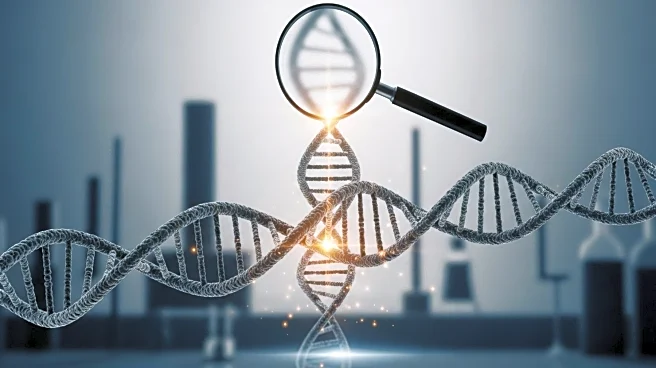What's Happening?
A recent study has uncovered a genetic secret to the longevity of naked mole rats, which are known for their unusually long lifespan of up to 40 years. Researchers at Tonji University in Shanghai have identified a DNA repair mechanism in these rodents that may explain their resistance to age-related diseases such as cancer, brain deterioration, and arthritis. The study, published in the journal Science, focuses on a protein called c-GAS, which in humans interferes with DNA repair, potentially promoting cancer and shortening lifespan. However, in naked mole rats, this protein aids in DNA repair, maintaining the integrity of the genetic code. This discovery raises questions about evolutionary adaptations and the potential for applying these findings to human health.
Why It's Important?
The findings from this study could have significant implications for human health and longevity. Understanding the DNA repair mechanisms in naked mole rats may lead to breakthroughs in preventing or treating age-related diseases in humans. If scientists can replicate or enhance similar mechanisms in human cells, it could extend healthspan and improve quality of life as people age. This research also contributes to the broader scientific understanding of how certain species have evolved unique biological processes to combat disease and extend lifespan, offering potential pathways for medical advancements.
What's Next?
Researchers will likely continue to explore the genetic pathways and proteins involved in the naked mole rats' DNA repair mechanisms. Further studies may focus on how these processes can be mimicked or induced in human cells. Additionally, there may be increased interest in examining other long-lived species to identify common genetic traits that contribute to longevity and disease resistance. Collaboration between geneticists, biologists, and medical researchers could accelerate the development of new therapies aimed at enhancing human health and lifespan.
Beyond the Headlines
The study of naked mole rats not only provides insights into longevity but also challenges existing paradigms about aging and disease resistance. It prompts ethical and philosophical discussions about the pursuit of extended human lifespan and the potential societal impacts. As scientists delve deeper into genetic manipulation and longevity research, questions about access, equity, and the implications of significantly extending human life will become increasingly relevant.










